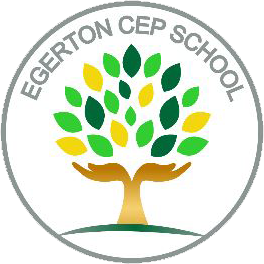Early Years Foundation Stage
Early Years Foundation Stage (EYFS)
Matthew 19:14
"Jesus said, 'Let the little children come to me, and do not hinder them, for the kingdom of heaven belongs to such as these.'"
Children learning in Reception classes are known as the Early Years Foundation Stage or EYFS for short. We follow the statutory EYFS framework for teaching and development. This stage is very important in a child’s life as it helps prepare for school ‘readiness’ as well as preparing them for their future learning and successes.
The EYFS framework explains how and what children will be learning to support their healthy development and provide the foundation children need to make the most of their abilities and talents as they grow up.
Children learn skills, acquire new knowledge and demonstrate their understanding through 7 areas of learning and development, these are split into Prime and Specific areas.
Children start developing in the 3 prime areas first. These are:
- Communication and language;
- Physical development; and
- Personal, social and emotional development.
These prime areas are those most essential for a child’s healthy development and future learning, these weave through our Early Years Curriculum. As children grow, the prime areas will help them to develop skills in 4 specific areas. These are:
- Literacy;
- Mathematics;
- Understanding the world; and
- Expressive arts and design.
All 7 areas of learning are used to plan children’s learning and activities. We make sure that the activities are suited to your child’s unique needs. This is a little bit like the curriculum in the rest of the school but it's suitable for very young children, and it's designed to be really flexible so that staff can follow your child's unique needs and interests, while also teaching them the most important skills and knowledge to prepare them for future learning.
Intent
At Egerton CEP School we offer a curriculum rich in wonder and memorable experiences. We work hard to provide a stimulating environment that provides exciting opportunities, promotes challenge, exploration, adventure and a real love of learning. It is our intent that all children develop physically, verbally, cognitively and emotionally in an environment which values all cultures, communities and people.
We aim for our children to be confident and independent, to believe in themselves and interact positively with others. We understand that play is an integral part of learning and this is at the heart of our Early Years curriculum. We believe that the correct mix of adult directed and uninterrupted child-initiated play ensures the best outcomes for pupils. Warm and positive relationships between staff and children, consistent routines and strong relationships with parents are key. We recognise the crucial role that Early Years education has to play in providing firm foundations upon which the rest of a child’s education is successfully based.
Implementation
At Egerton Primary School we meet the welfare requirements laid down in the Statutory Framework for the Early Years Foundation Stage and actively safeguard and promote the welfare of all of our children.
We prioritise creating a ‘language rich’ environment through the use of songs, nursery rhymes, stories and providing time for quality interactions between adults and between peers. Staff ensure that interactions are positive and progressive, allowing children to flourish and gather words at pace in order to become confident communicators.
Children are encouraged to become early readers through enjoyment of books and the systematic teaching of phonics through the ReadWrite Inc. programme. The children learn nursery rhymes and develop their mathematical thinking through direct teaching and exploration. We want our children to become confident mathematicians who can apply what they have learnt to real life experiences. We have built our school environment to enable our children to strengthen their core muscles through physical play, children spend time outdoors in their natural environment in all weathers. Our learning environment is adaptable in order to reflect children's interests and progression.
The children are supported to learn to work together, manage their feelings and ask questions through skilled adult facilitated play. The curriculum is taught through topics which are enriched with classroom enhancements, trips and visitors. Topics are supported by quality key texts. These are chosen carefully to encourage children's speech, language and communication development. All planning however, is flexible and responsive to children’s needs so plans can be changed and adapted dependent on children’s interests.
We understand the importance of parental engagement and believe that our parents have a crucial role to play in their children's education. We work hard to create strong partnerships between home and school. Parents enjoy using Tapestry to engage in their child's learning and share experiences from home.
As part of the learning and teaching process, children are assessed in relation to their progress towards the Early Learning Goals (ELGs). These judgements are made on the basis of accumulative observations and in-depth knowledge of the children acquired through ongoing assessments. These ongoing assessments are used to inform planning and next steps in teaching and learning for all children throughout the year.
Intent
- Our inclusive curriculum and its delivery ensures that all children, from their own starting points, make good progress.
- During their time with us children make progress towards the national expectation for a Good Level of Development (GLD) at the end of the year.
- Pupils also make good progress toward their age-related expectations both academically and socially, developing a sense of themselves before transitioning into Year One.
- Children develop their characteristics of learning and are able to apply their knowledge to a range of situations making links and explaining their ideas and understanding.
- Children are confident to take risks and discuss their successes and failures with peers and adults drawing on their experiences to improve or adjust what they are doing.
